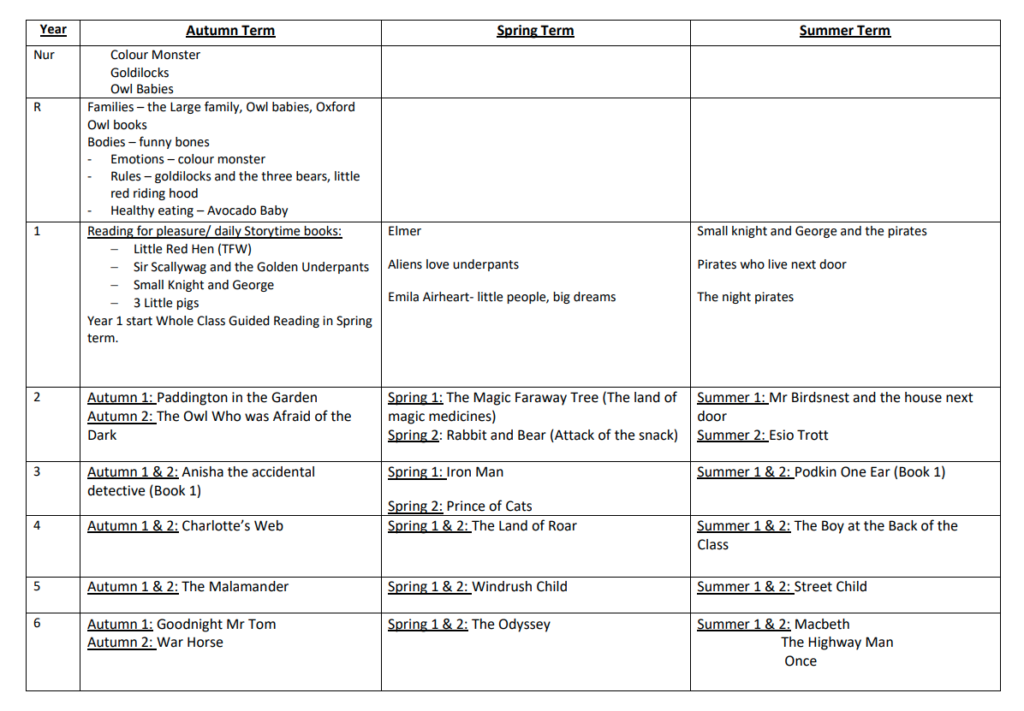English
Writing
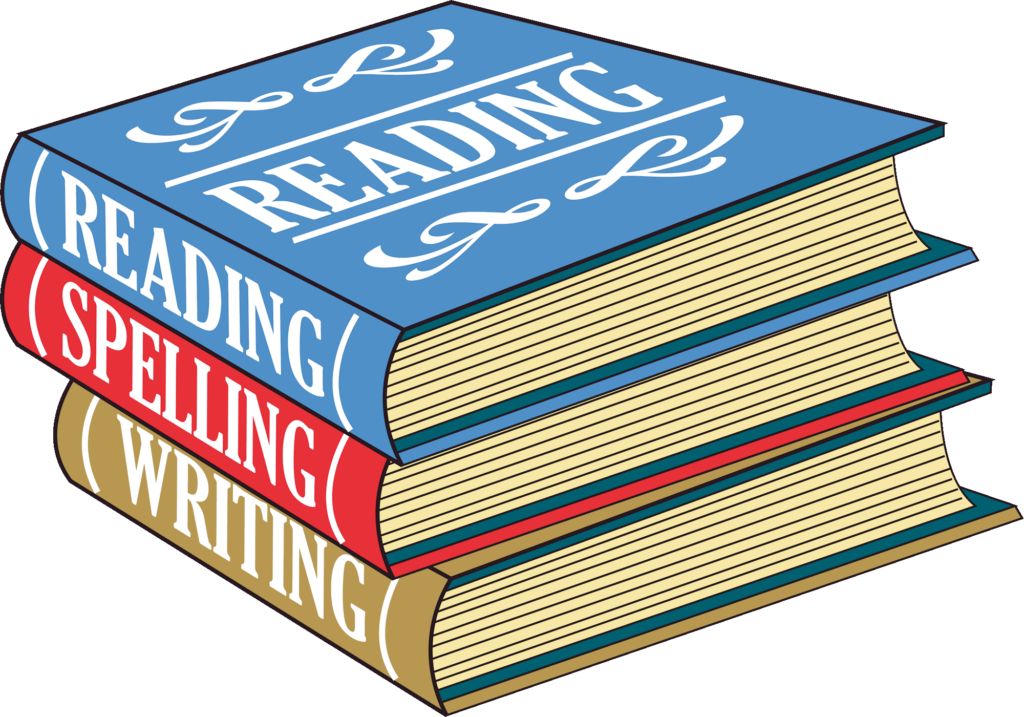
“You can make anything by writing.” -C.S Lewis
At Leverton Primary School, we want to produce children who are able to write with confidence and accuracy for a variety of purposes whilst developing their own individual flair. We want our children to be able to write with grammatical accuracy and to apply spelling rules correctly and use neat handwriting. We aim to expose our children to a wide range of vocabulary so that they are able to decipher new words and then use them appropriately, enabling them to apply their English skills to all areas of the curriculum.
Our Implementation
Writing is taught throughout the school using a developing structure of the ‘Talk4Writing’ approach. We teach children to imitate and innovate writing before becoming independent writers with their own writing style. As a school, we also incorporate Alan Peat sentence types in our planning and teach the children how to use them in their own writing to vary sentence types.
Reception
Writing is taught as a whole class. Planning is based upon a rich text and follows the theme of all the learning over a two-week period. The text is read daily throughout this time, so the children are fully immersed and can join in with confidence. A model text (usually in response to an exciting ‘hook’) is shared, learnt, written and innovated by the children. Each week, children work in small, adult-led groups to develop their skills and strategies to promote independence. Children are taught to form letters in the print style with fine motor control supported through activities that promote hand and core strength in addition to visual perception. Spelling is taught discretely during ELS (Essential Letters and Sounds) phonics lessons. Independent mark making is promoted from the earliest stages within the learning environment. As children role-play, they write in real-life situations which encourages them to see writing as purposeful which also develops independence.
Key Stage 1 and 2.
Writing is taught whole class, with planning based upon a rich text that is usually linked to the topic (unless this compromises the text quality). Teaching strategies throughout a unit include modelled, shared and guided writing. Lessons involve the children working collaboratively to support all to achieve using personalised strategies and differentiation, with dedicated lesson time directed for the children to self-assess, peer assess and edit to improve their work.
Spelling, grammar and punctuation are taught in phonics and English lessons. Often, these elements are taught discretely at first but then within the writing lessons, so the skills are embedded and in context for the children.
Handwriting is taught discretely in the first term, for 10 minutes daily, to set the expectations for the year group. Following this, misconceptions are addressed within lessons or through support groups. The pre-cursive style is taught in Year 1 and perfected in Year 2 with a focus on letter joins, until writing is fully cursive. Children should write in the cursive style in Key Stage 2.
Impact:
The intended impact of our delivery of writing is that all pupils enjoy writing across a range of genres, can write for a range of purposes and audiences and become confident and effective communicators. They will amass a varied vocabulary that they can use across the curriculum and can apply spelling rules and grammatical concepts in their work. We also aim to ensure that our pupils are proud of their writing and have opportunity to see it on display and shared with others in the school and with their families. Looking forward, we intend that by the end of Year 6 children are confident in crafting a piece of writing, which holds them in great stead for secondary school and their future ahead.
Progression in Writing
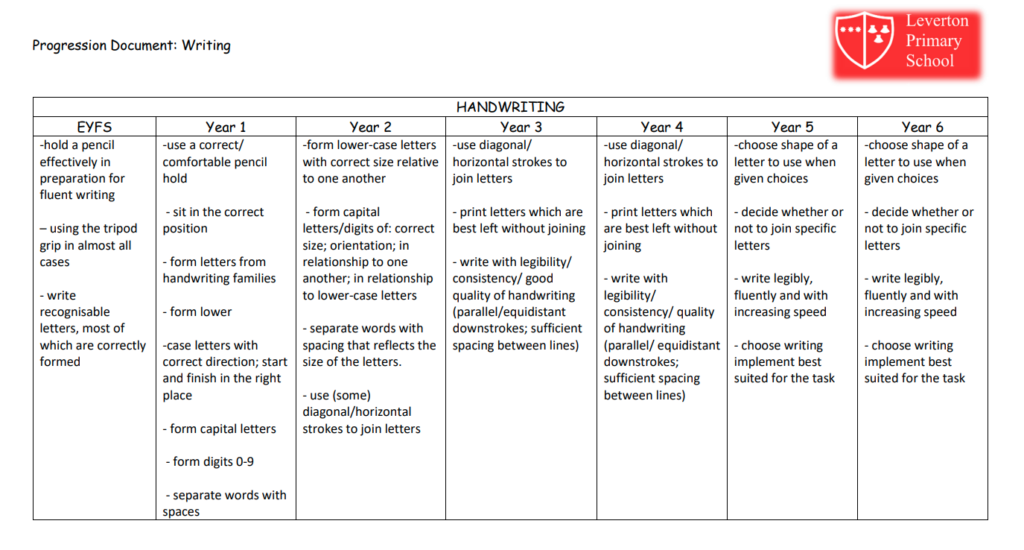
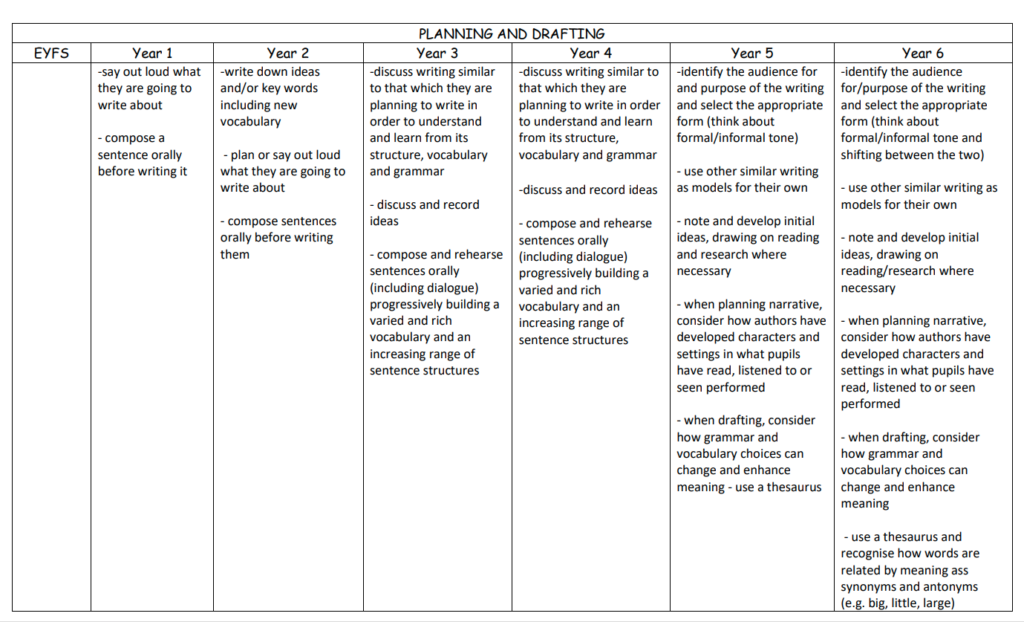
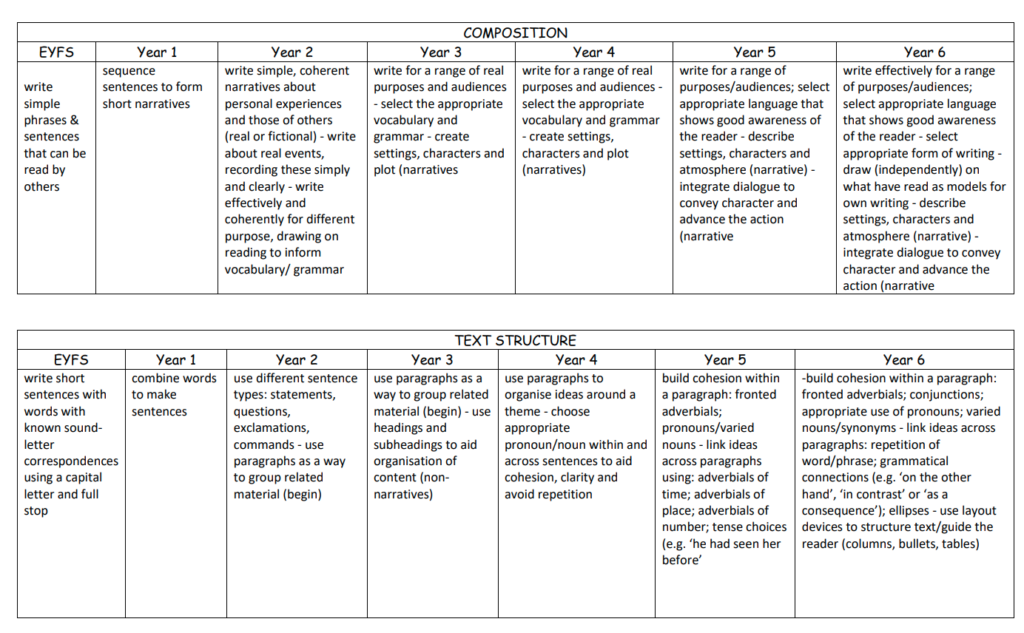
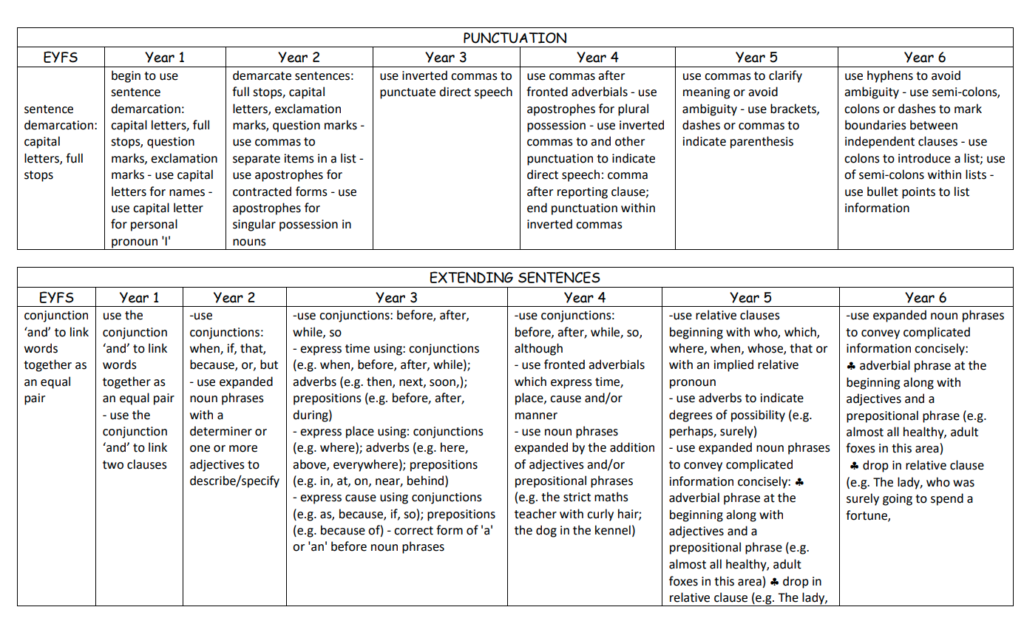
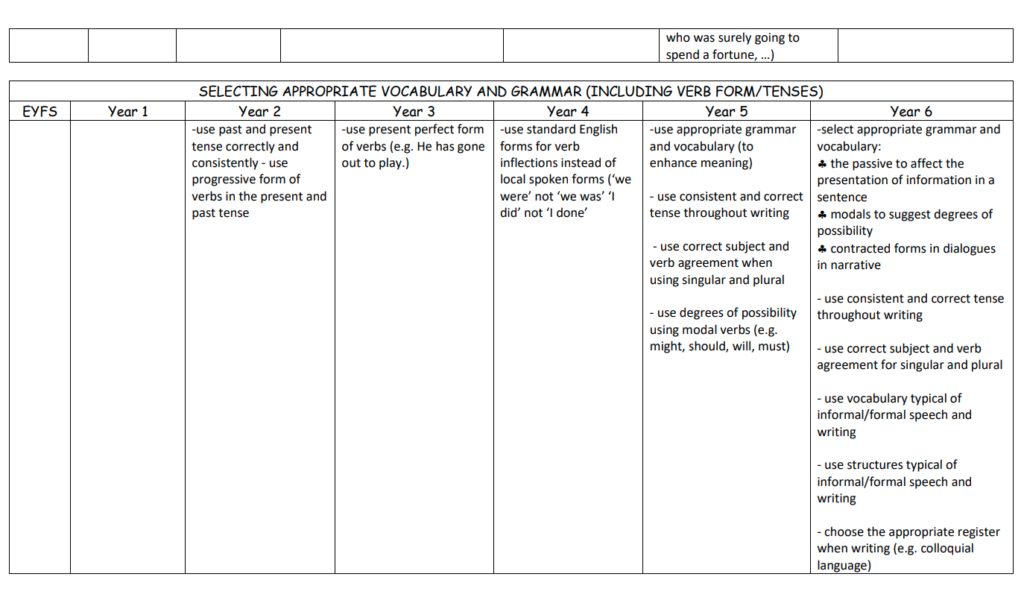
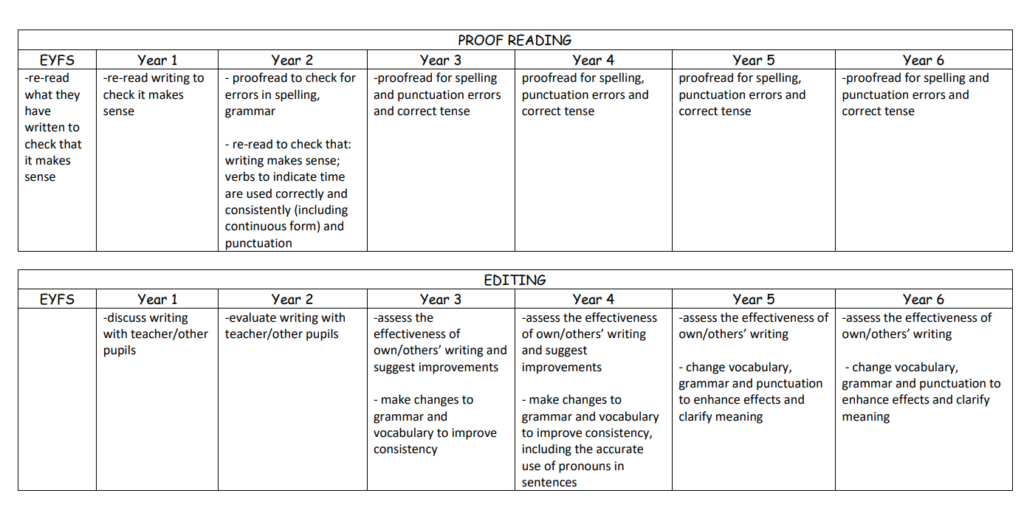
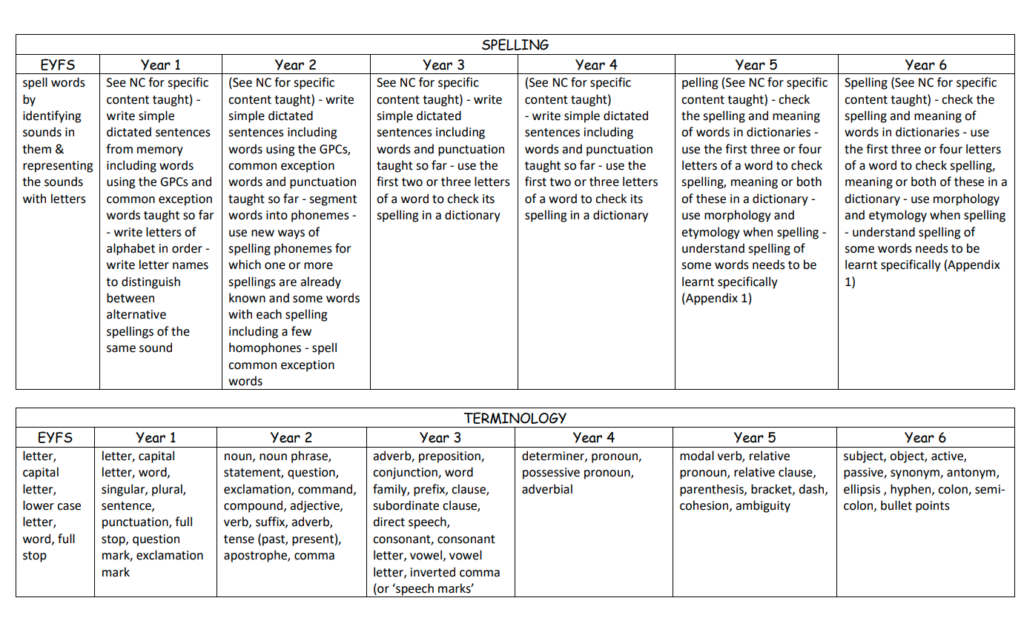
Reading
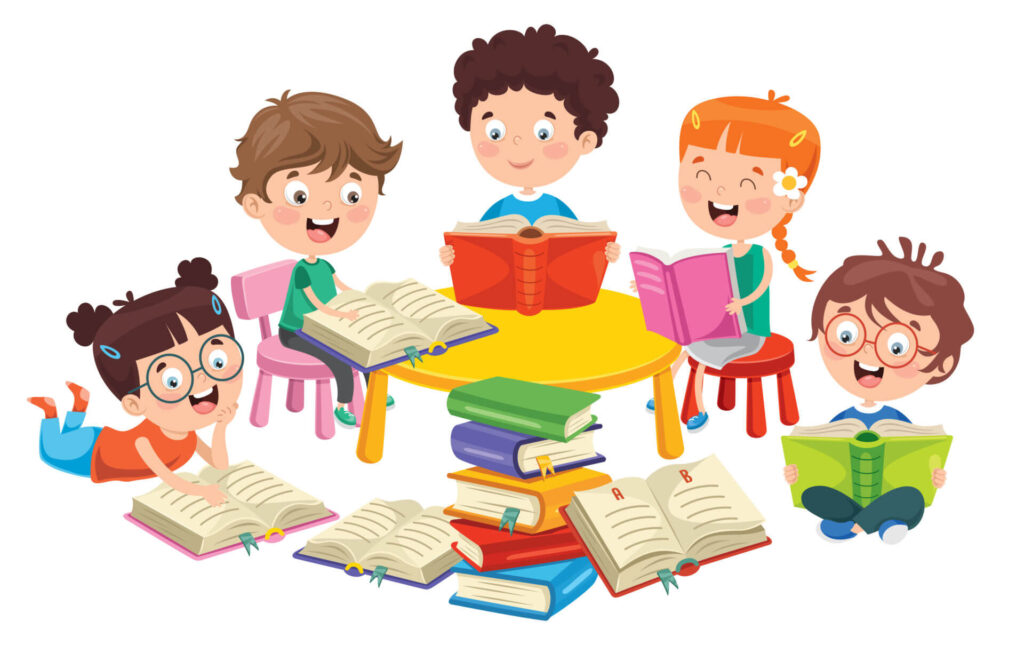
At Leverton Primary School, we believe that reading is an essential skill that enriches the lives of all children. We are committed to enabling children at Leverton Primary to become lifelong readers who reap the rewards that reading has to offer. The heart of our strategy ensures that children learn to read effectively, comprehending what they read and ultimately choosing to read for pleasure. To foster this love of reading, we pair imaginative activities with high quality texts that provide appropriate challenges for children. This begins in our Nursery and flows through to our leavers in Year 6. Additionally, our dedication to phonics allows children to keep up, rather than catch up throughout this journey.
Reading Implementation:
As a school, we approach our reading lessons consistently by following a whole class Guided Reading format. Every year group timetables Guided Reading lessons, ensuring that children are given opportunities to explore a range of reading skills. We use strategies such as ‘Mind’s Eye’ to ensure all children ‘turn on the TV in their mind’ before reading, allowing them to develop their comprehension of the text. All children can access the text through strategies such as pre-reading, re-reading, echo and choral reading. During echo and choral reading, teachers model how to read a piece of text with prosody and the class are given the chance to practice echoing this. Children are also given opportunities within Guided Reading lessons to link their reading skills with their writing abilities, often asked to create a range of responses to a text.
From the Autumn term, Year 2 and Key Stage 2 have daily Guided Reading lessons which follow a consistent weekly structure. This structure consists of the following: retrieval practice; vocabulary; reading fluency; inference and a free choice lesson to develop children’s interest in the class text. Each year group focuses on a set text for a half or full term, exploring a different chapter each week. This allows children to develop a greater understanding of the text as they get to explore the text in depth whilst also getting to finish the book, which is an important aspect of developing their reading identity.
Early Reading:
Phonics begins within Leverton’s Nursery, ensuring the ELS scheme is followed and lessons are taught in line with the programme (please see the Phonics section of the website for more details). Within Nursery a child’s reading journeys begin as they have their very own story shed and indoor book corner, they explore many stories throughout the day and become actively immersed in them. Reception and KS1 also have daily phonics lessons following our Essential Letters and Sounds (ELS) phonics scheme, with additional afternoon sessions taking place. The afternoon sessions are in response to the children’s needs and will involve targeted interventions. Within Nursery and Reception, children will also be exposed to key reading skills during their story time through focused and planned questions to help develop their comprehension skills.
During the spring term, Year 1 children begin to follow a formal Guided Reading planning structure which includes elements of the KS2 format but it is adapted to suit the needs of the children. Their week consists of two formal Guided Reading lessons, using strategies such as: Mind’s eye, Echo/Choral reading and retrieval questions. There are three other guided reading style sessions that happen during their daily Storytime during the week which take the form of planned book talk.
After the ELS programme:
KS2 children still benefit from targeted phonics interventions in the form of ELS Progress, which allows children to continue to develop their phonics knowledge if needed but in an approachable KS2 format.
Every member of staff, including volunteer readers, receives high quality training to ensure that Leverton’s expectations are clear as well as ensuring every reading experience with a child is effective. Following on from ELS, we follow the Oxford Reading Tree scheme across the school which sees children progress through the coloured bands until they become a free reader.
Reading for pleasure takes place a minimum of twice a week in every class. The reading for pleasure text for each class is displayed around the school and the purpose of this time is to help foster a love of reading within the class. We use areas such as our ‘Reading Bus’ or outdoor learning spaces during these times to further promote this. Sustained Silent Reading (SSR) takes place twice a week in KS2 and Sustained Silent Listening (SSL) takes place twice a week in KS1. The purpose of these sessions are to build children’s stamina within reading. KS2 children also complete a book journal once a week during SSR, which allows them to respond freely to what they have read, further developing their enjoyment within reading. During SSR, the teacher reads with any children who may benefit from extra support or with children they have not had the chance to read with that week yet.
Class libraries:
Every classroom has a book corner which includes texts that reflect the classes interests and is regularly updated so that children have a chance to explore a wide range of books. They include a range of fiction and non-fiction texts which are in line with their current topics. Furthermore, we have two school libraries at Leverton, one for KS1 and one for KS2. Children are also encouraged to explore our reading bus which is open at lunch times and has been used for parent reading cafes.
Assessment:
We formally assess reading throughout the school using NTS assessments, which we then use to identify gaps and to form our lesson/ intervention planning. Teachers additionally set targets based on their judgements when listening to children read and assessing the work they complete within Guided Reading lessons.
We also track progress in relation to our ELS programme, using the Phonics Tracker system. ELS provide a detailed assessment timetable which we follow throughout EYFS and KS1. SEN children are also assessed using the Phonics Tracker programme. Phonics is formally assessed at the end of Year 1 using the phonics screening check.
Reading Impact:
The desired impact of Reading at Leverton is that children view themselves as readers. We understand that reading is the key to all learning and enriches the lives of children above all else. We want children to leave Leverton viewing themselves as lifelong readers.
Furthermore, as a result of our phonics programme, we want children to leave Key Stage 1 as fluent readers. This will then enable children to develop their fluency and comprehension skills within reading as they progress through Leverton.
Progression in Reading
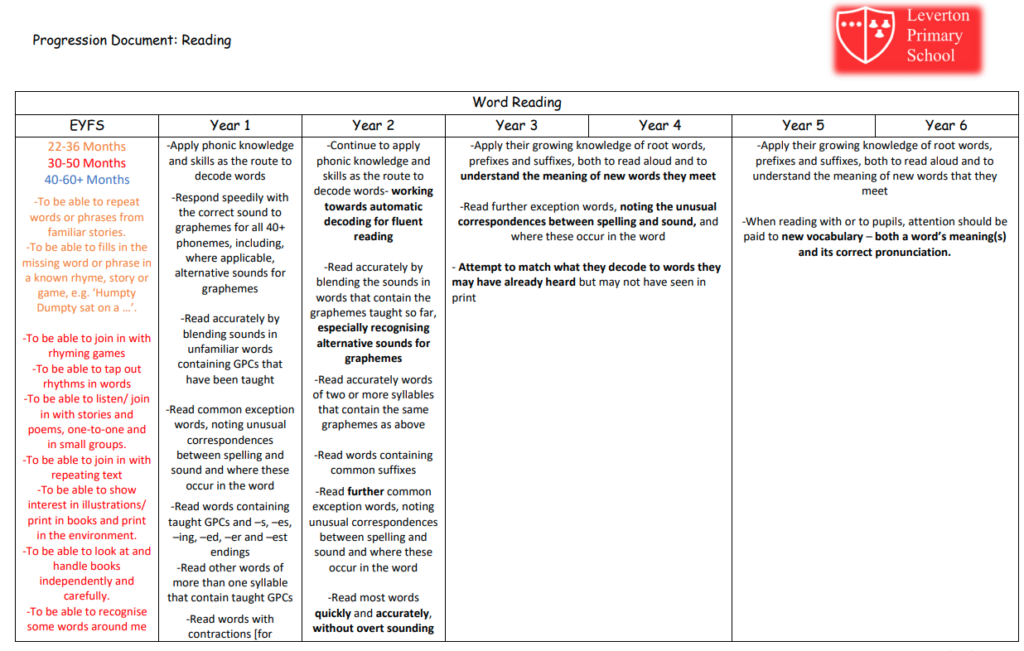
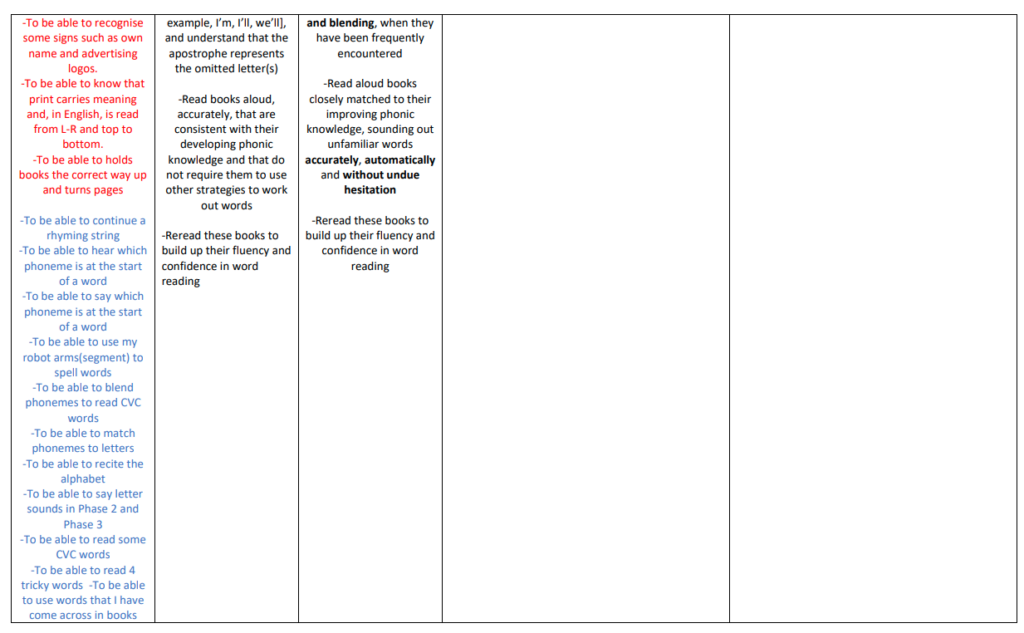
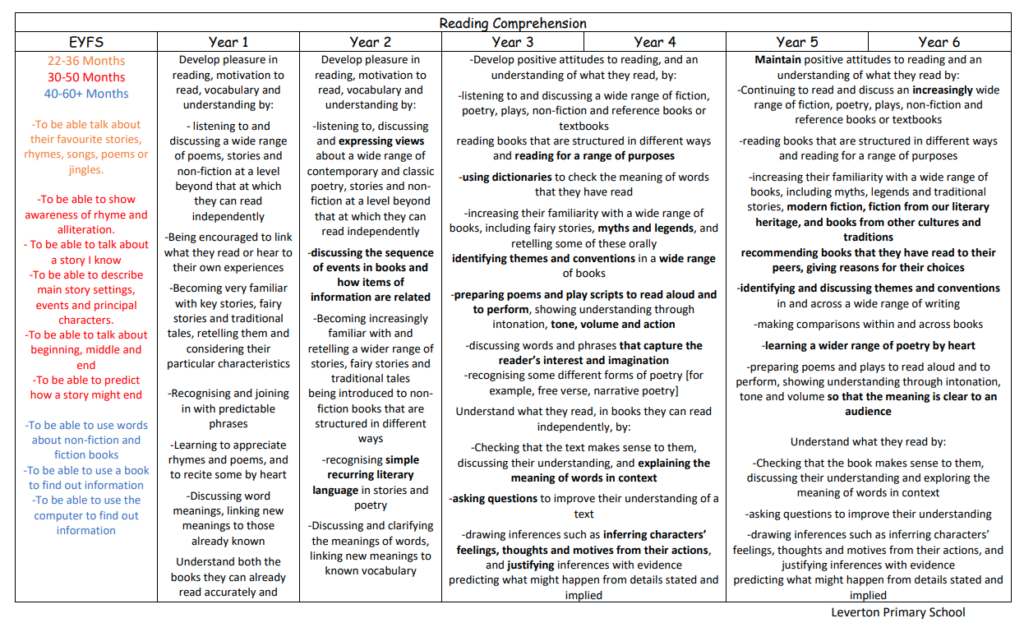
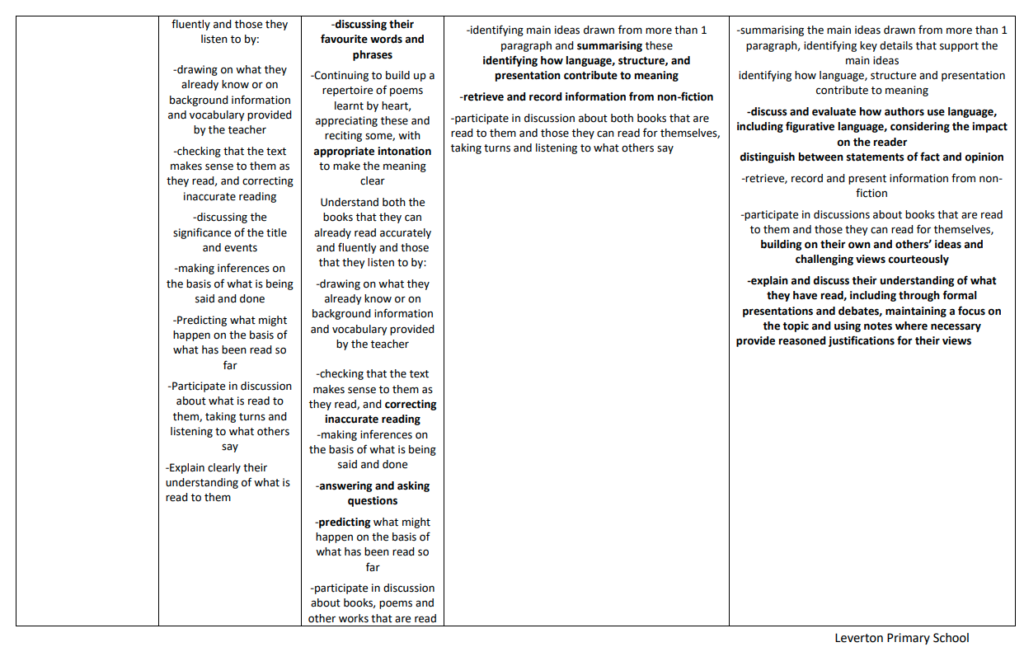

Reading Books & Poems by Year Group
